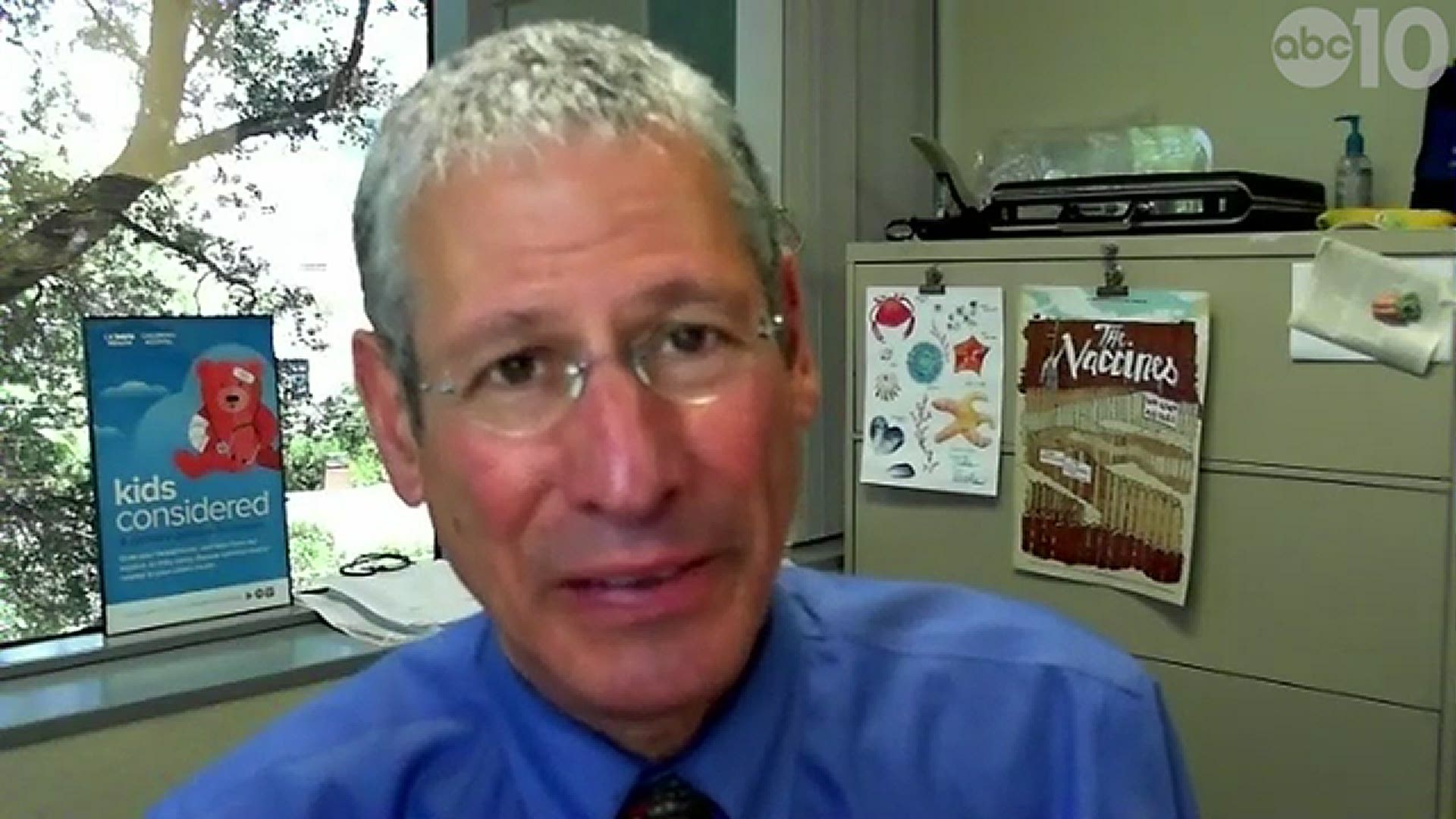CALIFORNIA, USA — Following a green light from state and federal officials, the Pfizer vaccine was approved for use on children 12 and older.
It’s a step that could see more than 2 million people between the ages of 12 and 15 vaccinated in California. That's about 5% of the state's population that could help the push toward normalcy.
“This is one more way to get closer to getting (kids) back in school, getting back with their friends, (and) having normal social experiences and normal development also,” said Dr. Dean Blumberg, chief of pediatric infectious diseases at UC Davis Children's Hospital.
The Pfizer vaccine is designed to stimulate the immune system to produce antibodies, just as if you were exposed to the virus. However, with the vaccine, you don't get have to get the virus first to get those antibodies and develop a level of immunity.
According to the CDC, some people might prefer natural infection to vaccination for that immunity, but the risk of illness and death from the virus outweighs "any benefits of natural immunity."
Immunity through natural infection is not a new concept. The archetype for this method is often chickenpox and “chickenpox parties,” where people would have their kids intentionally get the virus while they’re young so they can get the illness out of the way.
When it comes to COVID-19, the CDC says most children have mild to no symptoms. So, as vaccine hesitancy meets a newly approved vaccination group, Dr. Blumberg said there's really no question as to which immunization method for your child is safer.
“When you get vaccinated, all you get exposed to is the spike protein of the virus. It doesn’t replicate within you. You get immunity to that spike protein, and that’s what prevents infection," he said. "If you get infected, you get the whole virus invading your body. It can go anywhere. It can go to the heart. It can go to the brain. It’s very dangerous. I wouldn’t recommend that for anybody. There’s no question that’s much more dangerous than any risk of getting vaccinated."
Even though at one point the "chickenpox parties" were a thing among parents, COVID-19 is a different virus that Dr. Blumberg said carries a higher risk of dying than chickenpox and has a safe and effective vaccine available. Also, to the point of “chickenpox parties,” they aren’t recommended by the CDC.
Dr. Blumberg said getting immunity after an infection carries a lot of variables, especially in regard to the level of immunity you get. People with more severe cases of COVID-19 tend to have a more robust immune response than people who had an acute infection. He said that, when you compare the responses after infection to results after vaccination, you could get a better immune response through vaccination than through infection.
“We think that protection is better following immunization and is likely longer-lasting following immunization than after infection,” Dr. Blumberg said.
At the end of the day, it’s a choice between a safe and effective vaccine versus a roll of the dice with infection.
Even if most kids have mild to no symptoms, Dr. Blumberg said kids can still get very sick if they catch the virus. In his profession, he knows that as well as anyone.
“We know that thousands of children in the US have been hospitalized with COVID, and I’ve seen many of these myself in the ICUs, sometimes on ventilators. And, hundreds of children in the US have died from COVID, so, it still may be severe in children even though it’s not as severe as in adults,” he said.
Even an acute infection still carries risk with issues like MIS-C, a post-infectious complication that tends to happen a few weeks after a COVID-19 infection. Symptoms could include rash, vomiting, diarrhea, cough, headache, confused thinking, and even respiratory issues.
“Those children often have heart inflammation, (and) they often end up in the ICU. They’re scary sick, so that’s another thing we need to worry about with children and another reason to protect them with vaccination,” he said.
Another benefit of the vaccination is a decreased risk of transmission and, potentially, variants. With a variant, the less transmission a virus gets means the less chance it has for replication. In turn, there’s less risk of a variant forming.
“I don’t think there’s any question that getting vaccinated is much much safer than getting the infection," Dr. Blumberg said.



















